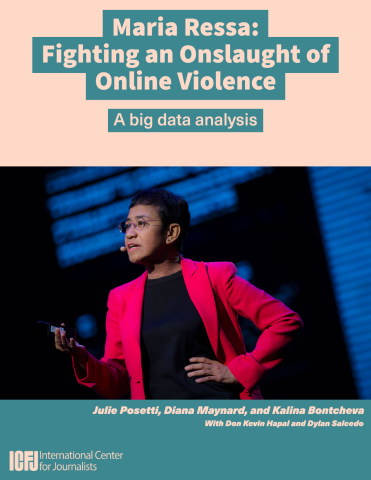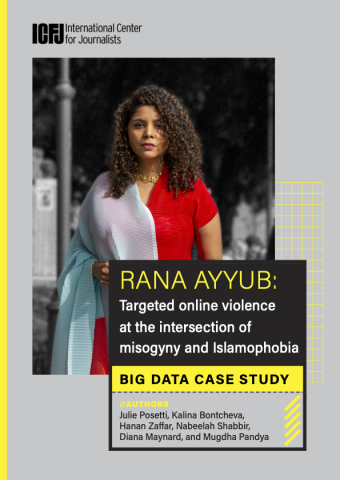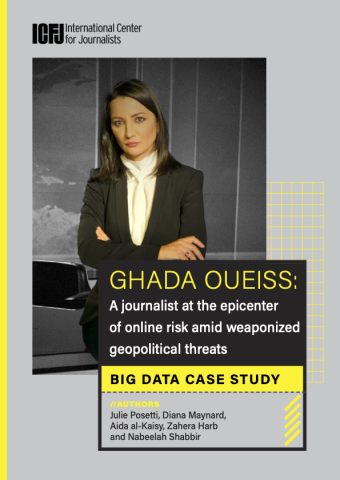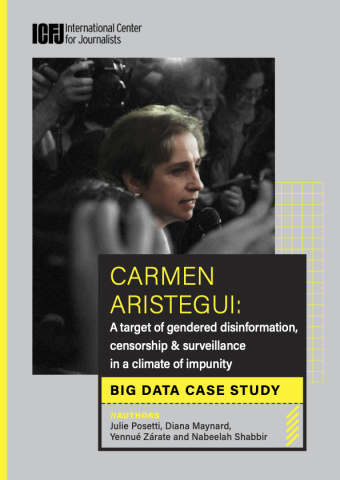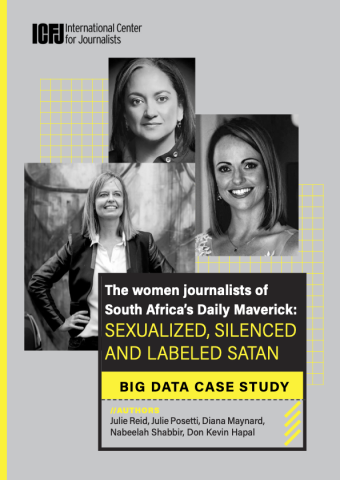Nearly three out of four women journalists surveyed globally by ICFJ and UNESCO in 2020 reported experiencing online violence, which frequently operates at the intersection of multiple forms of discrimination and disinformation. Alarmingly, 20% of the women surveyed said that they had experienced physical attacks, harassment and abuse connected to the online violence they endure.
As part of our commitment to better understand, respond to and prevent such attacks, ICFJ partnered with University of Sheffield computer scientists to produce pioneering big data case studies on targeted women journalists. The case study subjects have suffered intense, prolonged and coordinated attacks that are emblematic of online violence against women journalists in their regions.
To date, ICFJ and our partners have conducted in-depth studies of women journalists in seven countries and analyzed 18 million social media posts directed at them. The novel interdisciplinary research approach involves blending computational linguistics (Natural Language Processing), machine learning, and network analysis with contextual field research, including long-form interviews with the targeted women. The aim is to provide a solid evidence base to correlate the experiences of the women journalists studied with hard data to determine the characteristics, methods and escalation points associated with online violence campaigns that are designed to terrify the women targeted and chill their journalism.
See below for links to these case studies, led by our deputy vice president for global research, Dr. Julie Posetti.
To be published:
- Daphne Caruana Galizia, Malta
Expert trainers with regional knowledge will lead 1.5-hour classes on the following topics: audio/podcasts, video, content design, strategic communications and audience engagement.
All sessions will be online.
The conference kicks off in February with keynote talks on the anatomy of disinformation in each of the target regions. Following the conference, participants who attend at least three of the five sessions will be eligible to apply for grants and mentorship to develop innovative multimedia projects that break new ground in spreading factual information.
CONFERENCE KICK-OFF KEYNOTE
February 23
Anatomy of Virality: How Disinfo is Spread & How We Can Make Truth Viral
Axel Bruns, xxx
Speaker bio
CONFERENCE SESSIONS
March 2
Creating Viral Video Content
Topic: Video
Jacob Templin, xxx
Speaker bio
CONFERENCE SESSIONS
March 2
Creating Viral Video Content
Topic: Video
Jacob Templin, xxx
Speaker bio
More about this program
Research Topics
News about this program
- November 9, 2023
Carmen Aristegui: A Prime Target of Online Violence in the Deadliest Country to Practice Journalism Outside a War Zone
- March 7, 2023
New Research Illuminates Escalating Online Violence on Musk’s Twitter
- February 14, 2023
How Disinformation Fuels Online Violence Storms Targeting Women Journalists
